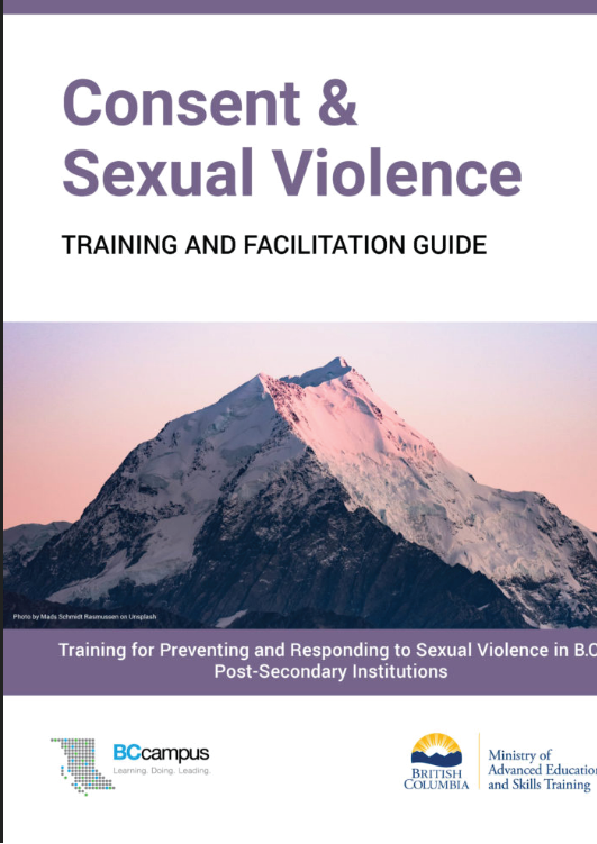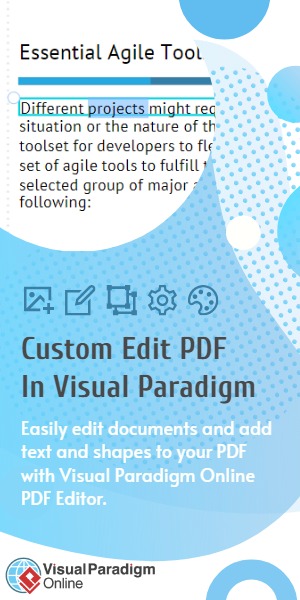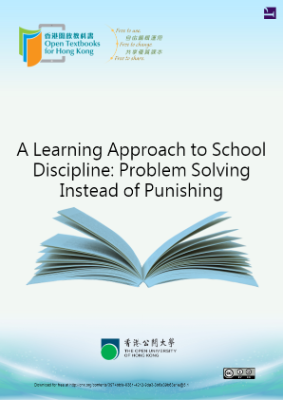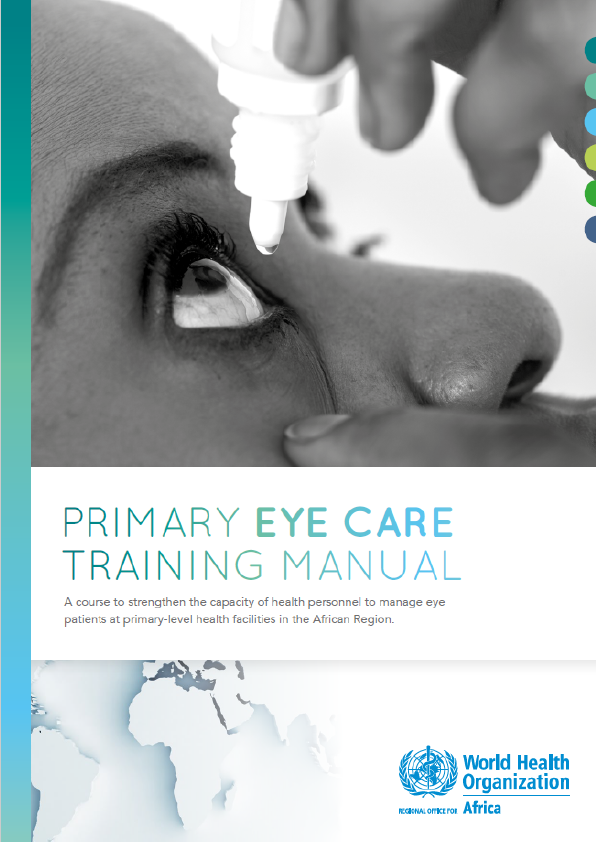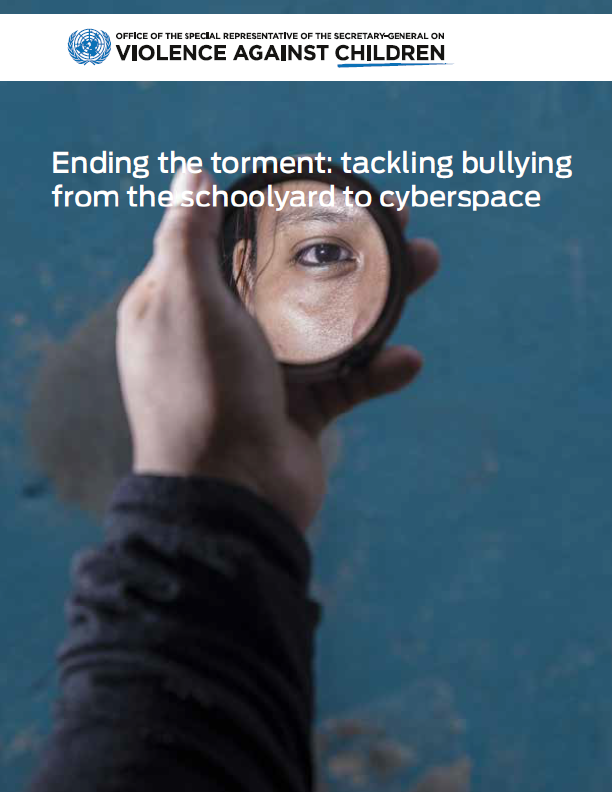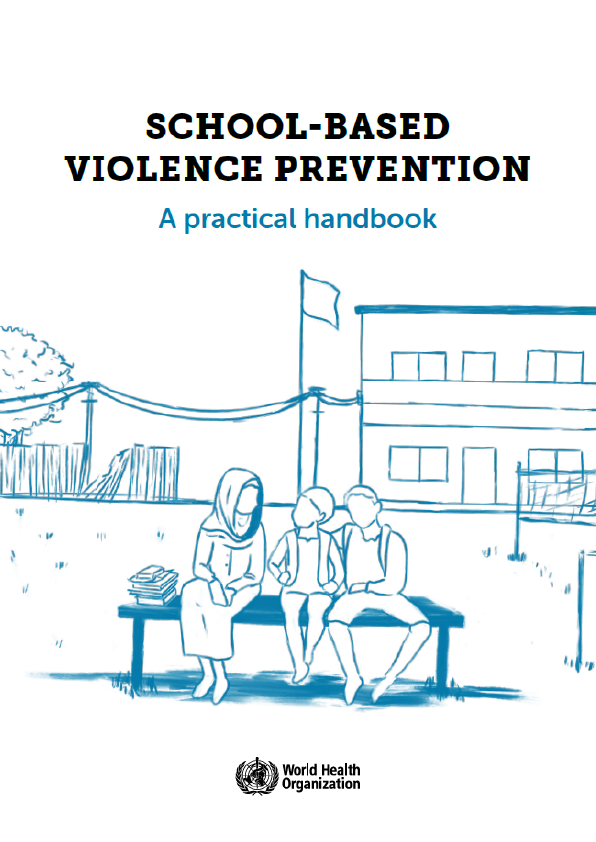This resource was developed as part of a provincial project to develop open access resources to address sexual violence and misconduct at post-secondary institutions.
Consent & Sexual Violence Training and Facilitator Guide: Preventing and Responding to Sexual Violence in B.C. Post-Secondary Institutions is one of four open educational resources now available for the B.C. post-secondary sector. These four components can serve as a foundation for a comprehensive educational strategy to provide students, faculty, and staff with the awareness, knowledge, and skills required to prevent and respond to sexual violence and misconduct and to create healthier and safer campuses for all.
In 2016, the B.C. Sexual Violence and Misconduct Policy Act was introduced, requiring all 25 B.C. public post-secondary institutions to develop policies to prevent and respond to sexual violence and misconduct. In 2017–2018, a government outreach campaign identified the need to increase access to quality training resources. While access to training resources is an issue for all institutions, it is a particular challenge for smaller institutions. The need for open access educational resources that could be adapted by individual post-secondary institutions was identified as an important part of increasing knowledge about sexual violence and system-level capacity building (BCcampus, 2019).
In 2019, a cross-sectoral sexual violence and misconduct training and resources working group was established to provide advice and identify priorities for the development of the resources. Over a two year period, the Working Group:
- Identified priority sexual violence and misconduct topics where training resources are needed. This included resources on consent, responding to disclosures, understanding the root causes of sexual violence, accountability and justice, and trauma-informed practice.
- Developed a toolkit for evaluating sexual violence training and resources to guide the selection of training resources that are gender-inclusive, survivor-centred, evidence-informed, decolonial, trauma-informed, intersectional, culturally located, and accessible for all users.
- With the support of external consultants, identified and reviewed sexual violence and misconduct training and educational materials from all 25 B.C. post-secondary institutions as well as community, provincial, and national organizations.
This training is part of a growing collection of open education resources for addressing sexual violence in BC. These resources are intended to be of use for staff, students, and faculty working in a range of contexts, including:
- Campus sexual violence centres
- Campus Indigenous groups
- Accessibility services
- Peer support workers
- Wellness programs
- International students and staff/faculty who work with them
- Student leaders
- Student organizations
- LGBTQ2SIA+ student groups
- Athletics and sports departments
- Fraternities and sororities
- Other groups that are working to prevent sexual violence on campus
The resources for this project were developed, written, and reviewed collaboratively by a development team which included individuals with expertise in a wide range of areas, including sexual violence prevention and response, trauma-informed practice, adult education, equity and inclusion, Indigenous education, and community-based anti-violence programming and service delivery. Members of the Sexual Violence Training and Resources Working Group also reviewed the materials and provided feedback on how to tailor the materials to the post-secondary context.
Content specific to Indigenous considerations, working with international students, and gender & LGBTQ2SIA+ inclusion was reviewed and/or written by individuals with extensive experience in these areas. However, it is important to remember that these are areas where best practices are rapidly emerging and changing. We highly recommend that this resource be used as an introduction and foundation for addressing these topics in your work. As you adapt this training for your particular context, it is important to continue to build on the expertise and knowledge of students, staff, and faculty with experience in these areas and to develop an approach to training that reflects current issues, needs, language, and perspectives of these diverse groups within your institution and/or community.
